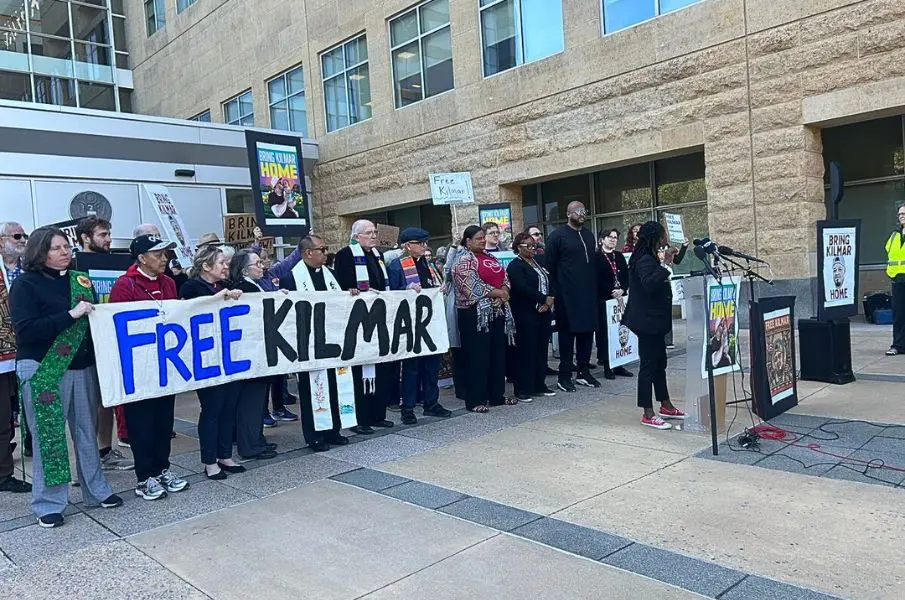In the echoing corridors of the federal court in Maryland unfolds a drama that exposes the fault lines of American immigration policy with surgical precision. Kilmar Armando Abrego Garcia, a Salvadoran citizen with American roots through marriage, has become the unwilling protagonist of a Kafkaesque odyssey that leaves even seasoned jurists in stunned disbelief.

Judge Paula Xinis, whose patience had worn thin after more than six exhausting hours of hearings, voiced her frustration with a sharpness rarely heard in legal circles. "You are not even remotely close," she thundered at the government attorneys as they struggled to weave together the contradictory narratives of their argument into a coherent whole. The metaphor of baseball - "three strikes and you're out" - hung over the heads of the government representatives like a Damoclean sword.
The paradox of forced statelessness
What appears in the files as an "administrative error" reveals itself upon closer inspection as a lesson in bureaucratic hubris. Abrego Garcia, who was under the protection of a 2019 court ruling that prohibited his deportation to El Salvador, nevertheless found himself in a Salvadoran prison - a victim of the very system that was supposed to protect him. Months passed before the Supreme Court forced the Trump administration to bring him back, a judicial slap in the face that still reverberates.

The irony of the current situation could hardly be more bitter: Costa Rica, a country that not only offers Abrego Garcia refuge but also permanent legal protection and a guarantee of non-extradition to El Salvador, is categorically rejected by the administration as a destination. John Schultz, deputy director of deportation operations at ICE, revealed in his testimony a shocking ignorance of this option - a circumstance that prompted Judge Xinis to deliver the scathing remark that the witness knew "less than nothing" about Costa Rica.
The geography of despair
The search for a host country resembles a diplomatic shambles. Uganda and Eswatini were put forward as options, yet the African nations proved unwilling to become pawns in American domestic politics. Ghana’s foreign minister, Samuel Okudzeto Ablakwa, declared with unmistakable clarity on social media that his country would not take in Abrego Garcia - a direct and unequivocal message to the American authorities.
The temporal choreography of events exposes the baselessness of the government’s position: only two days before the hearing was Eswatini officially asked to accept him, only to decline just hours before the proceedings began. This improvised diplomacy, more reminiscent of a game of chance than of structured governance, provoked Judge Xinis to exclaim that the situation was "a joke to everyone listening." Paradoxically, Abrego Garcia currently enjoys legal residency in the United States - the Trump administration granted him a humanitarian visa until June 2026 in order to be able to press criminal charges against him. These accusations, that he had assisted in human smuggling, were already deemed by a federal judge in Nashville as likely retaliatory persecution.

The administration’s assurance that Abrego Garcia would "never be free on American soil" sounds increasingly hollow in light of legal realities. Should Judge Xinis approve his release - and after these six hours, that seems likely - it would mark the first time since August that he could breathe freedom again, a moment that would carry symbolic weight not only for him personally but for the entire American legal system. In this legal battle crystallizes the fundamental question of whether administrative arbitrariness or the rule of law will prevail. The answer will determine not only the fate of one man but also how America interprets its own ideals of justice and human dignity.
Investigative journalism requires courage, conviction – and your support.
Please also strengthen our journalistic fight against right-wing populism and human rights violations. We do not want to finance ourselves through a paywall so that everyone can read our research – regardless of income or origin. Thank you very much!


Wie armseelig Trump doch ist.
Sich an einem Mann abzuarbeiten.
Falsche Beweise vorzulegen, fadenscheinige Anklage zu erheben.
Richterin Xinis hat das gut durchschaut und fein säuberlich auseinander genommen.
Ein weiterer Schlag gegen Trump.
Leider wird er das nicht auf sich sitzen lassen.
Rachelüstern wie er ist, wird er weiter machen.
Für Kilmar und seine Familie ist es ein echter Hoffnungsschimmer.